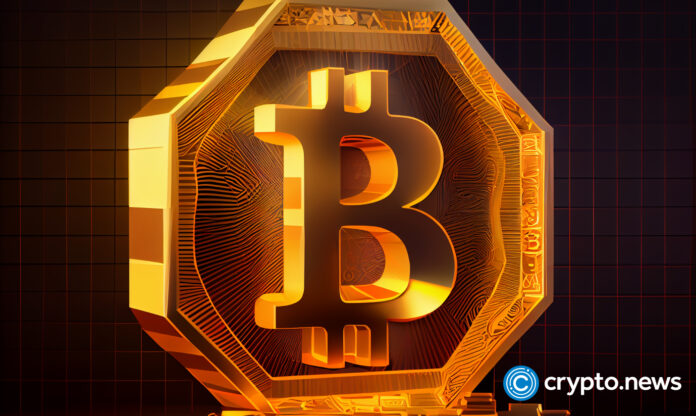De Nederlandsche Bank (DNB) revealed that it recently completed the transportation of 15 billion euros worth of gold bars, coins, and banknotes on Dutch roads over the past four weeks.
The operation involved relocating the Dutch stock of gold and banknotes from the Haarlem vault to the new Cash Center in Zeist. Bitcoin proponents pointed out that it would have been much cheaper and easier if DNB used digital assets instead.
Not the first time moving gold
Coen Voormeulen, the division director at DNB, clarified that while the operation to move the valuable assets was not publicized, it was not meant to be kept a secret. “We deliberately kept a bit of a low profile,” Voormeulen stated.
The security of the operation was ensured by the Royal Netherlands Marechaussee, who transported approximately 200,000 kilograms of gold bars and coins, along with notes worth around 4.5 billion euros.
This is not the first time the valuable stock has been relocated; in November 2020, the gold bars and notes were moved from Amsterdam to Haarlem due to an office renovation in the capital.
The recent relocation of the DNB assets saw a change in strategy compared to previous moves. Instead of executing the transfer in a single evening, as done before, this time, it was spread out over four weeks.
DNB had previously announced its plan to store its stocks in the Haarlem vaults temporarily, with the intention of moving them once the construction of the new center in Zeist was finished, which according to Twitter persona, @VandelayBTC, was an entirely new highly secure facility built by the DNB with the purpose to store this gold.
Introducing alternate methods of money transfer
The recent revelation of the DNB extensive operation to relocate its assets has sparked discussions about the efficiency and potential of digital currencies like bitcoin in money transfers.
Social media users, including @VandelayBTC, have highlighted the capabilities of bitcoin in contrast to traditional methods.
According to estimates, if DNB had utilized bitcoin for the transfer, the entire four-week process could have been completed in just 10 minutes, with a minimal cost of approximately $3.02. This stark contrast underscores the efficiency and cost-effectiveness of digital transactions.
This release coincides with two other major announcements, the approval of the Markets in Crypto-Assets (MiCA) regulation by EU finance ministers and Amsterdam’s participation in Dutch Blockchain Day, highlighting local awareness of the potential of digital assets.
Credit: Source link






















 Bitcoin
Bitcoin  Ethereum
Ethereum  XRP
XRP  Tether
Tether  Solana
Solana  USDC
USDC  Dogecoin
Dogecoin  Cardano
Cardano  Lido Staked Ether
Lido Staked Ether  TRON
TRON  Wrapped Bitcoin
Wrapped Bitcoin  Chainlink
Chainlink  Wrapped stETH
Wrapped stETH  Avalanche
Avalanche  Sui
Sui  Stellar
Stellar  Litecoin
Litecoin  Toncoin
Toncoin  Shiba Inu
Shiba Inu  LEO Token
LEO Token  Hedera
Hedera  USDS
USDS  Hyperliquid
Hyperliquid  Polkadot
Polkadot  WETH
WETH  MANTRA
MANTRA  Bitcoin Cash
Bitcoin Cash  Bitget Token
Bitget Token  Ethena USDe
Ethena USDe  Wrapped eETH
Wrapped eETH  Uniswap
Uniswap  Monero
Monero  NEAR Protocol
NEAR Protocol  Pepe
Pepe  WhiteBIT Coin
WhiteBIT Coin  Aave
Aave  Ondo
Ondo  Bittensor
Bittensor  Aptos
Aptos  Internet Computer
Internet Computer  Dai
Dai  Official Trump
Official Trump  Mantle
Mantle  Ethereum Classic
Ethereum Classic  Tokenize Xchange
Tokenize Xchange  OKB
OKB  Gate
Gate  Sonic (prev. FTM)
Sonic (prev. FTM)  sUSDS
sUSDS 
